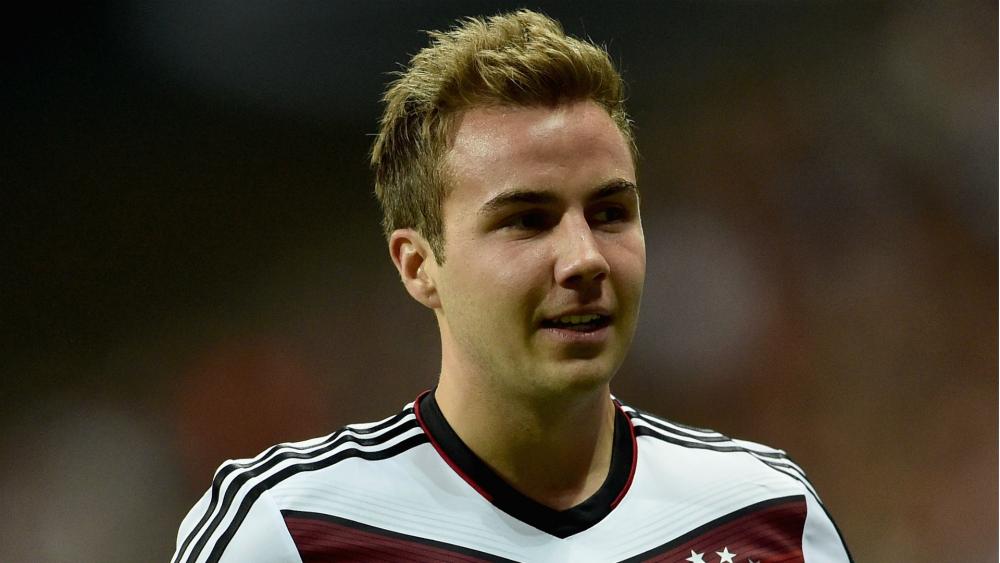My Perfect 10: Rui Costa
The new issue of FourFourTwois a 'Playmakers Special'. This week FFT.com's writers will be sharing their memories of their favourite No.10s - now is the turn ofMichael Cox, editor ofZonalMarking.net
At his peak Rui Costa had the complete attacking game â he could dribble, shoot and pass brilliantly â defenders simply didnâÂÂt know how to deal with him.
Add to that a tremendous footballing brain and his tendency to drift around the pitch and make things happen rather than waiting for the ball to come to him, and he was almost impossible to nullify.
He was the archetypal playmaker because he was very much a team player, always looking for a pass rather than personal glory; he had an amazing ability to utterly dominate a game without finding himself in the headlines.
When Portugal came back from 2-0 down to win 3-2 against England at Euro 2000, the goalscorers were Luis Figo, Joao Pinto and Nuno Gomes. Those three were the heroes, but it was Rui Costa who quietly assisted all three goals.
He played the best footballer of his career in his seven years at Fiorentina. For much of his time there, Fiorentina had a poor defence, an average midfieldâ¦and then possibly the best 9-10 combination in Europe, with Rui Costa supporting the legendary Gabriel Batistuta. Those two were the posterboys for a side that bucked the trend of defensive-minded Serie A football in the 90s.
Rui CostaâÂÂs best period of football actually came in the season after Batistuta left for Roma. He inherited the captainâÂÂs armband, and formed a tremendous attacking trident with his good friend Nuno Gomes, and the wonderful wide forward, Enrico Chiesa.
Get FourFourTwo Newsletter
The best features, fun and footballing quizzes, straight to your inbox every week.
The side hit its peak with an incredible 4-0 win over AC Milan in January 2001. That was huge - Milan just donâÂÂt lose 4-0, not a Milan with Paolo Maldini and Alessandro Costacurta at the back. Silvio Berlusconi was so stunned by the victory that in the next transfer window, he not only signed Rui Costa to be MilanâÂÂs playmaker, he also hired the man who had coached Fiorentina on that day, Fatih Terim.
His career at Milan never really hit the heights expected of a ã28 million footballer â first he struggled with injuries, then Kaka arrived at the club, meaning Rui Costa was no longer the main man.
But he did contribute heavily to a wonderful Milan side, that, forced to cope without Pippo Inzaghi, managed to cram four playmakers â Kaka, Rui Costa, Clarence Seedorf and Andrea Pirlo â into the same system, with Rino Gatusso sweeping up behind, and Andriy Shevchenko banging the goals in.
His international career came to a slightly premature end thanks to Deco acquiring Portuguese citizenship, and after PortugalâÂÂs poor opening game at Euro 2004, Rui Costa found himself on the bench.
He still managed to score one of the tournamentâÂÂs best goals with a thumping drive against England, but his substitute appearance against Greece in the final was his last, and the nature of the result was an awful way for him to bow out.
He took a large paycut in 2006 to keep a long-standing promise that he would finish his career at his boyhood club, Benfica.
After two years as a player, he retired in 2008 to become the clubâÂÂs Director of Football. In this position, he is in charge of the clubâÂÂs transfers and his playing style is reflected in the players he has brought in â few others would believe in a side featuring both Pablo Aimar and Javier Saviola.
Rui Costa seemed to have a connection with his clubâÂÂs supporters that few other present day footballers can match. He was an immensely loyal player â only leaving Benfica and Fiorentina when the two clubs were forced to sell him for financial reasons â and only leaving Milan to return to his home city.
One of the most memorable moments was after the final whistle FiorentinaâÂÂs victorious Coppa Italia final in 2001. Rui Costa collapsed to the ground and spread on his back by the touchline with his arms in the air.
A jubilant viola fan scaled the barriers around the edge of the pitch and dived on top of him in celebration, only to be dragged away and given a battering by the riot police at the side of the pitch. Rui Costa jumped up, pulled the supporter away, gestured for the police to leave him alone, before guiding the fan back to the stands with an understanding look.
It was moments like that which added to the aura around him. Like DeportivoâÂÂs Juan Carlos Valeron, part of the attraction was a feeling he was never quite as appreciated as much as he should have been, that people didnâÂÂt fully understand what he was capable of.
But he remains one of the most likeable players of the modern era â talented and selfless on the pitch, dignified and professional off it. Banners during his time at Fiorentina often read âÂÂRu1 C0staâ â few other players were as perfect for the number 10 shirt.
My Perfect 10: Paul Simpson on Vladimir Petrovic
My Perfect 10: Riccardo Rossi on Roberto Baggio
My Perfect 10: Steve Morgan on Robert Prosinecki
My Perfect 10: Andy Mitten on Eric Cantona
My Perfect 10: Hugh Sleight on Zico
My Perfect 10: James Horncastle on Francesco Totti
My Perfect 10:David Hall on Zinedine Zidane
My Perfect 10:Sefa Atay on Gheorghe Hagi
My Perfect 10: Jamie Bowman on Michael Laudrup
My Perfect 10: Joel Richards on Juan Roman Riquelme
Videos:Football's finest playmakers in full flow
The 'Playmakers Special' issue of FourFourTwo is in stories throughout September 2010.
FFT.comFeatures * News * Interviews * Home
InteractTwitter * Facebook * Forum
